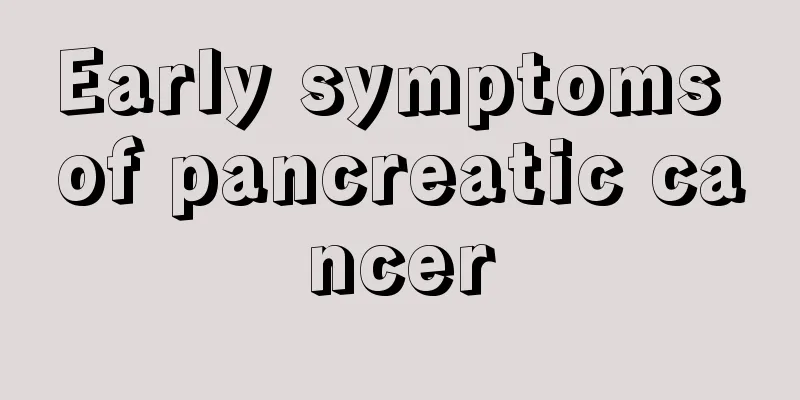Early symptoms of pancreatic cancer

|
Pancreatic cancer is a malignant tumor of the digestive tract. The early symptoms of pancreatic cancer are usually not obvious, and may include abdominal or upper abdominal pain, digestive system problems, weight loss, jaundice, gastrointestinal bleeding, etc. However, these symptoms do not occur in every patient, and these symptoms may also be manifestations of other diseases. It is recommended to seek medical attention in time, conduct relevant examinations and diagnoses, so as to detect and treat pancreatic cancer at an early stage. The details are as follows: 1. Abdominal or upper abdominal pain: This may be due to the tumor compressing or infiltrating the tissues around the pancreas, such as the bile duct, duodenum, etc. Pancreatic cancer may cause persistent or intermittent pain in the abdomen or upper abdomen. This pain may radiate to the back and may worsen after lying down or eating. 2. Digestive system problems: Early symptoms of pancreatic cancer also include digestive system problems, such as loss of appetite, indigestion, diarrhea, nausea, vomiting, etc. This may be due to a decrease in the secretion of digestive enzymes by the pancreas or the compression of the bile duct by the tumor, which leads to obstruction of bile excretion and affects the digestive function. The digestion and absorption of food may be disturbed. 3. Weight loss: Due to the decrease in digestive enzymes secreted by pancreatic cancer cells, patients may experience symptoms such as loss of appetite and indigestion, which can lead to weight loss. The tumor itself also consumes the body's energy, further exacerbating weight loss. 4. Jaundice: Jaundice is one of the early symptoms of pancreatic cancer. It is mainly caused by tumor compression or infiltration of the bile duct, which leads to obstruction of bile excretion and increased bilirubin levels in the blood, thus causing jaundice. 5. Gastrointestinal bleeding: Early symptoms of pancreatic cancer also include gastrointestinal bleeding, which may be caused by the tumor eroding the blood vessels or compressing the bile duct, resulting in blood vessel rupture or bile reflux into the stomach, corroding the gastric mucosa and causing bleeding. It usually manifests as black stools or vomiting blood. Patients are advised to pay attention to care in terms of diet, exercise, psychology, pain management, regular follow-up, and abstinence from smoking and alcohol to improve treatment efficacy and quality of life. At the same time, patients and their families also need to maintain a positive and optimistic attitude to facilitate the treatment of the disease. |
<<: Can intervention cure liver cancer?
>>: Is one breast larger than the other a sign of breast cancer?
Recommend
What are the methods of TCM to treat liver cancer
What are the methods of TCM for treating liver ca...
Is melanoma easy to cure?
Melanoma is a tumor that develops from melanocyte...
Will onychomycosis cause swollen feet?
Onychomycosis usually occurs on our hands, and so...
What are the effects of frog oil
Rana affine oil can be said to be a great tonic b...
The 9 worst positions in life that damage your health
1. The worst position in a public restroom - the ...
What foods can prevent cervical cancer
In the early stages of cervical cancer, there are...
What should be done to check for ovarian cancer
What should be done to check for ovarian cancer? ...
What is prostate cancer? Where does prostate cancer metastasize to?
Among cancer diseases, the occurrence of prostate...
Why does my face feel numb?
Facial numbness is a very common phenomenon. If t...
The harm of meat floss biscuits
Meat floss biscuits are a high-calorie food. Ther...
What are the dietary taboos for diabetic patients
People's lives are really getting better and ...
Chemoradiotherapy regimen for nasopharyngeal carcinoma
Chemoradiotherapy for nasopharyngeal carcinoma Na...
Bilateral cervical lymph nodes are visible, and these two major causes are actually the cause
Acute suppurative lymphadenitis and chronic lymph...
When to drink milk to enlarge breasts
Breast enhancement is always a topic that women c...
Is it too late to supplement calcium in late pregnancy?
Many women will take calcium supplements as soon ...









